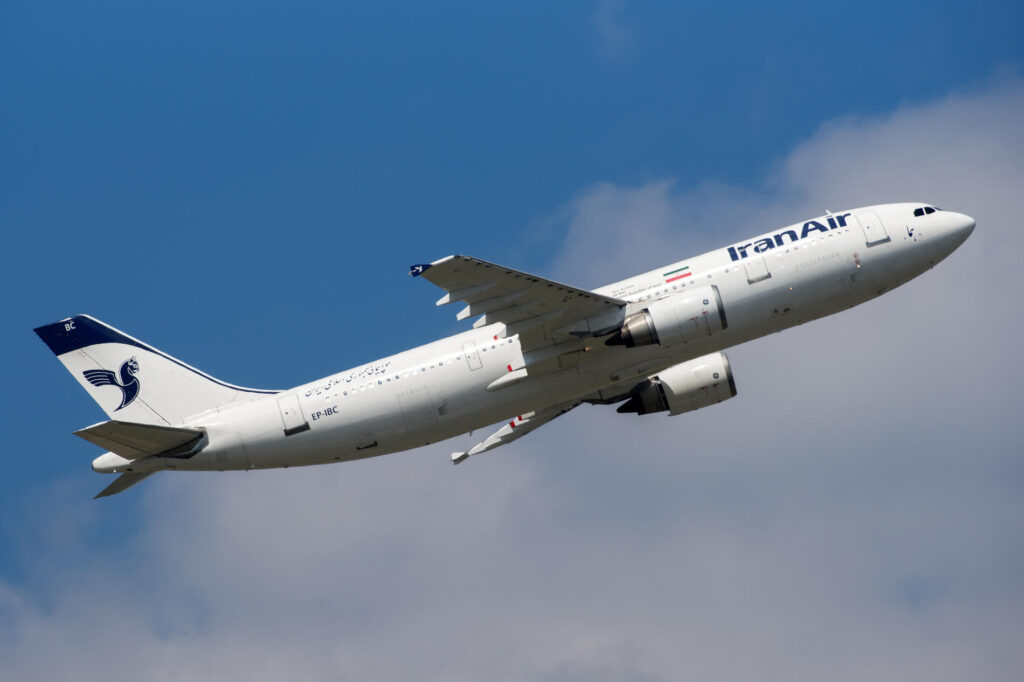On July 3, 1988, Iran Air flight 655 from Bandar Abbas, Iran, to Dubai, the United Arab Emirates, was shot down shortly after takeoff by two missiles from the USS Vincennes frigate that was patrolling in the Strait of Hormuz. The 290 people on board were killed.
The Airbus A300 registered EP-IBU, took off from the coastal city of Bandar Abbas (BND) to carry out flight IR655 to Dubai (DXB), only 200 kilometers (124 miles) away. Onboard were 290 people, including 274 passengers and 16 crew members.
Seven minutes into the flight, as it was over the Persian sea, the aircraft was hit by two surface-to-air missiles. The explosions destroyed the tail and one of the wings, sending the plane crashing down into the sea.
The missiles had been fired by the USS Vincennes, a frigate of the U.S. Navy that was patrolling in the Strait of Hormuz along with two other frigates, USS Elmer Montgommery and USS John H. Sides. The mission of the naval group was to secure the strategic area in a tense context of the war between Iraq and Iran. Today, a fifth of the world’s oil passes each day through the strait.
According to the U.S. Navy, the Airbus A300 was briefly identified as an Iranian F-14 fighter by the ship’s IFF (Identification friend or foe) system. Moreover, the radar operators reported that the aircraft was descending towards the ship. After calling about ten times on the radio, the USS Vincennes took the shot and brought down the commercial plane.
A point of contention in Iran-U.S. relations
Despite paying more than $130 million in compensation to Iran and the relatives of the victims in 1996, the United States never admitted responsibility. The president, Ronald Reagan, and the vice-president, George Bush, initially endorsed the version of the frigate’s commander, which was that the plane had left its air corridor, before eventually admitting that the U.S. Navy was deceived by the flight’s low altitude. However, Reagan justified the “appropriate defensive action” taken by the crew of the USS Vincennes.
The memory of this event was at the center of a recent diplomatic row. With the tensions between the United States and Iran renewed, U.S. President Donald Trump threatened to target 52 Iranian sites, as a reminder of the 52 American citizens held hostage by Iran at the U.S. embassy of Tehran in 1979. Iran’s President Hassan Rouhani responded by reminding Trump of the “number 290”, referencing the victims of flight IR655.
Those who refer to the number 52 should also remember the number 290. #IR655
Never threaten the Iranian nation.— Hassan Rouhani (@HassanRouhani) January 6, 2020
Two days later, on January 8, 2020, a Boeing 737 of a Ukrainian International Airlines crashed shortly after take off from Tehran International Airport, Iran, killing the 176 people on board.
After a few days of denial, the Iranian authorities eventually admitted that the aircraft was shot down. An operator of the Iranian Revolutionary Guards (IRGC), stationed in Bid Kaneh, allegedly mistook the commercial flight for a cruise missile and fired two missiles from a Tor-M1 surface-to-air system. Despite what was claimed at first, the flight had not diverted from its course and was not flying towards the nearby missile base of Malard.
